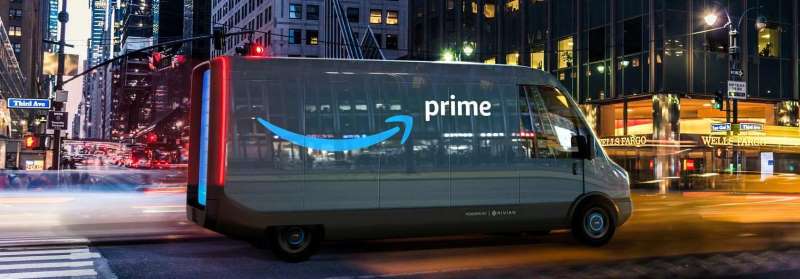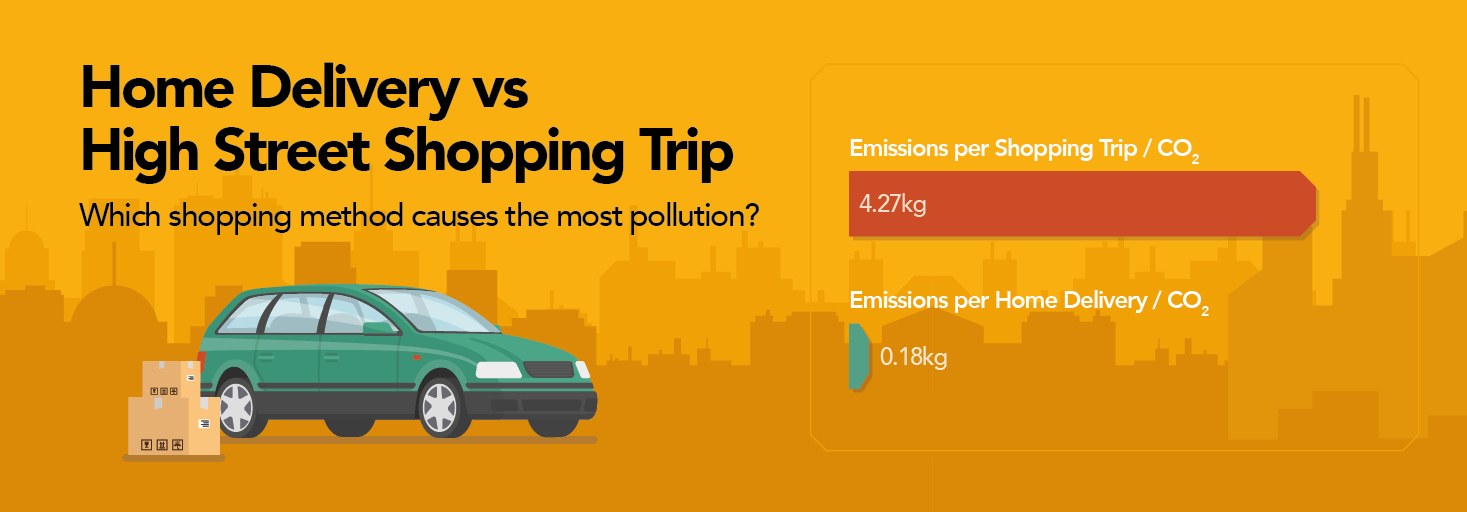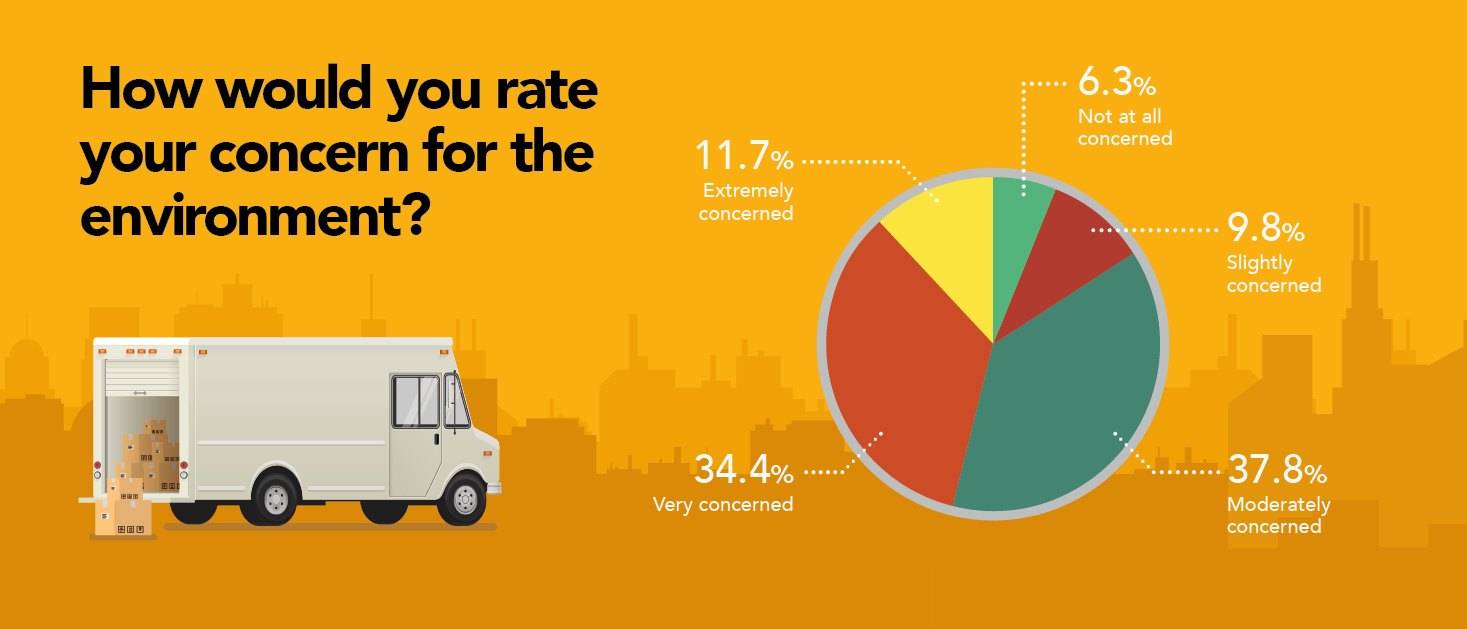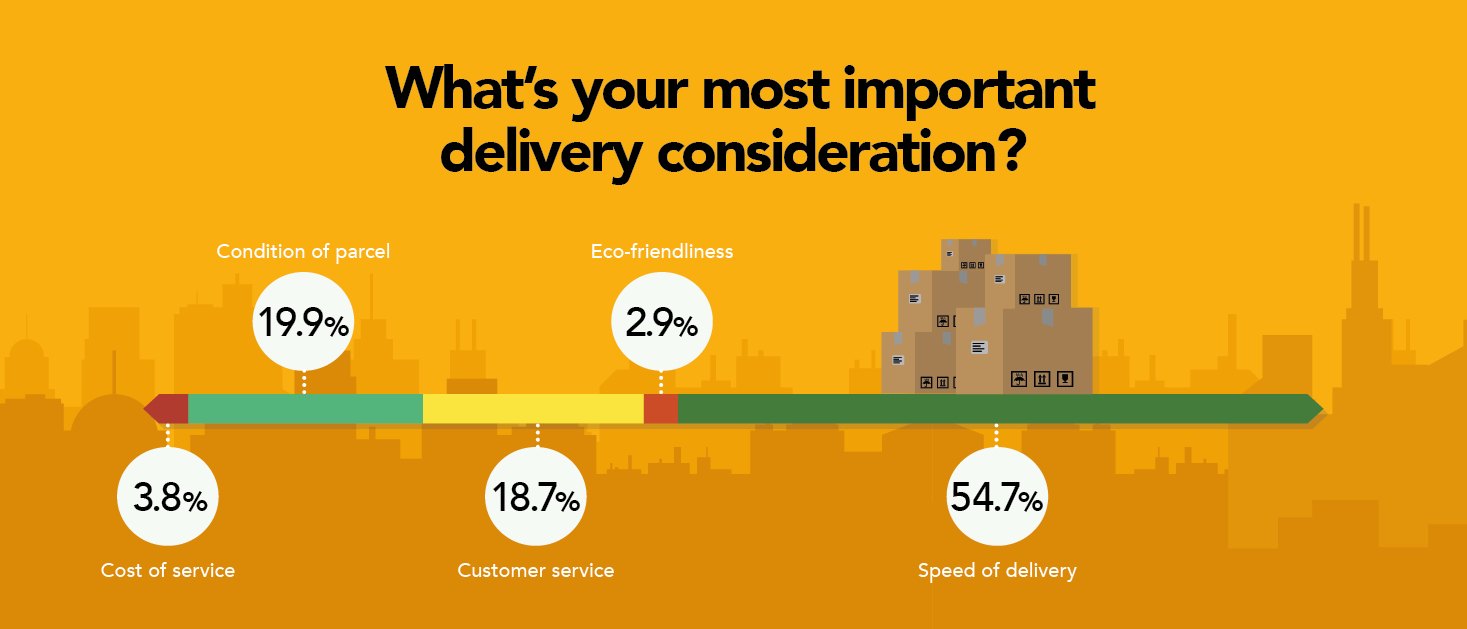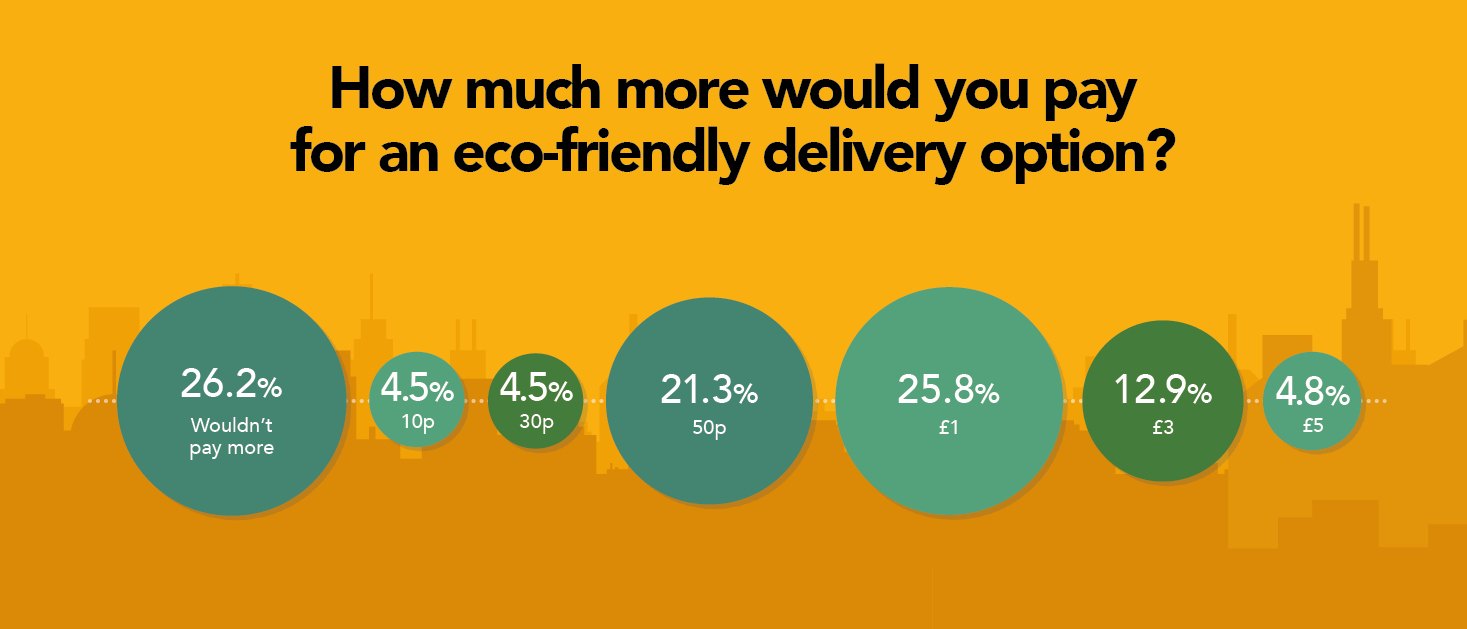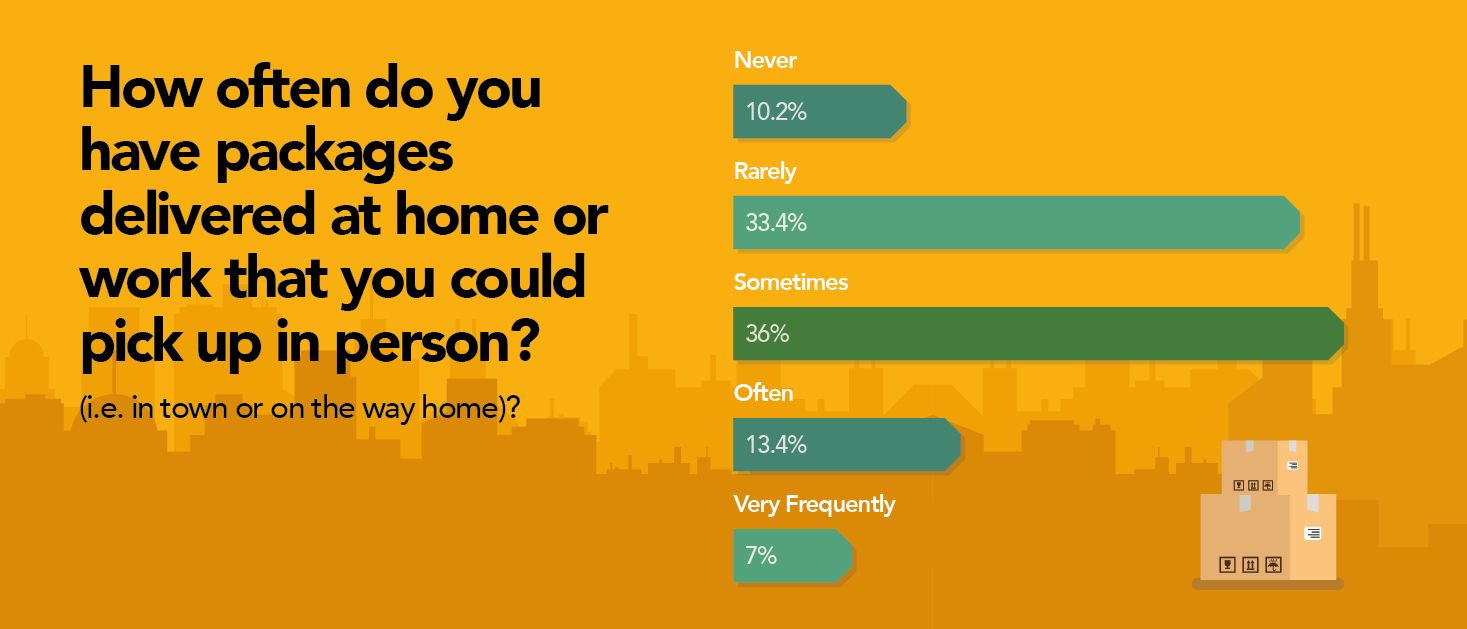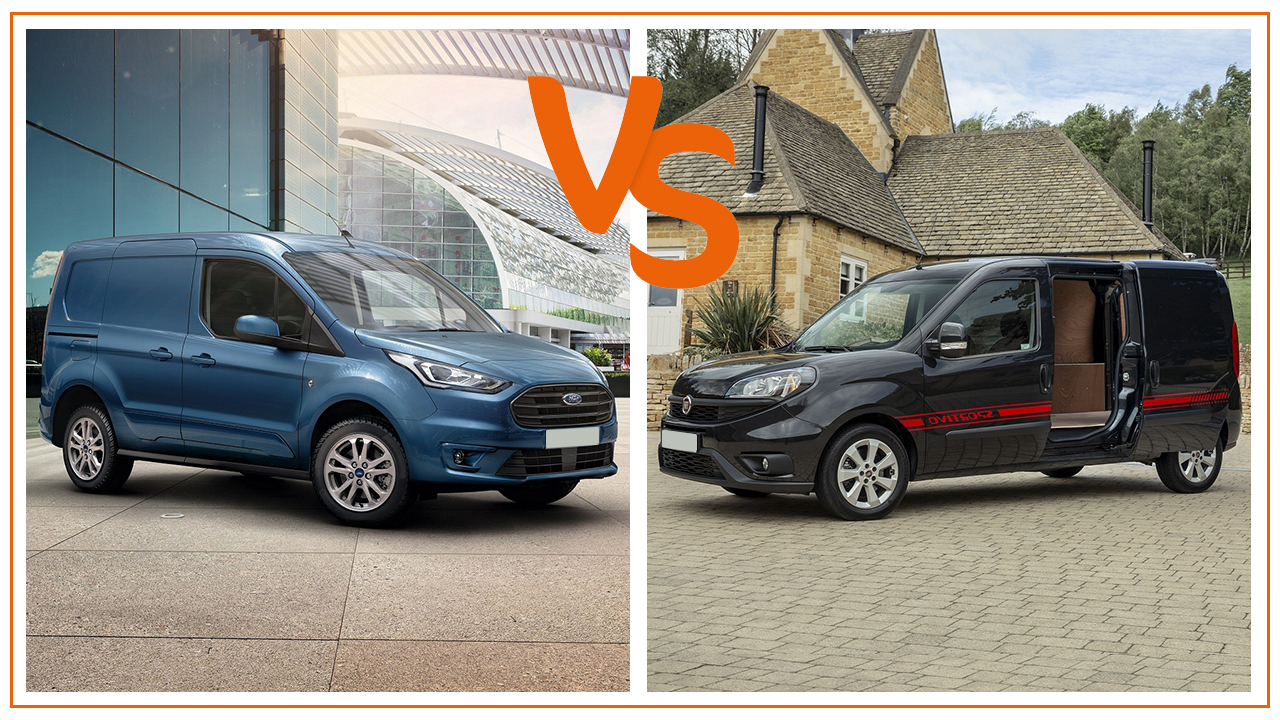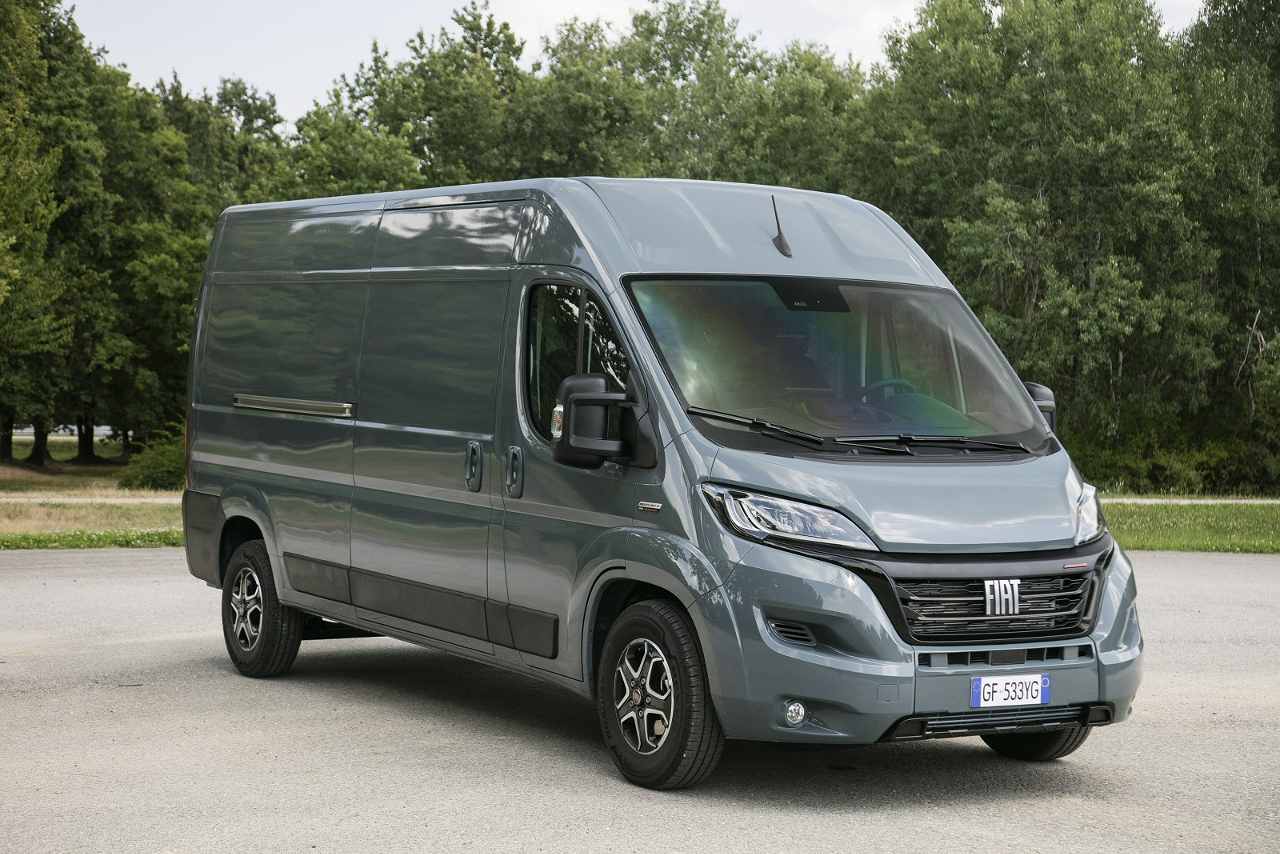With concerns about climate change getting louder each year, environmentally conscious online shoppers are beginning to demand that retailers and delivery companies react to the crisis. Potential solutions are for stores to offer eco-friendly delivery slots and to replace petrol-powered vehicles with electric equivalents to be kinder to the environment when delivering parcels.
This push to an eco-friendlier future has coincided with the nation's ever-increasing addiction to online shopping, and more specifically on demand next-day delivery. Next-day delivery is the favoured option for more than half (52%) of UK shoppers according to YouGov. However, many commentators have said that tackling the climate crisis and enjoying next-day delivery isn't compatible, or is it?
Vanarama has carried out research to establish if home delivery is more environmentally friendly than taking a trip to the shops yourself. Are retailers and courier companies beginning to take action and consumer attitudes towards eco-friendly delivery? Would consumers take up the option of eco-friendly delivery in place of next-day shopping? Read on to find out.
Key Findings
-
Home delivery is 24 times more eco-friendly than going on a shopping trip in your car.
-
94% of consumers care for the environment, but the vast majority still prefer fast, next-day delivery than an eco-friendly alternative.
-
Over 43% of shoppers would pay £1 or more for eco-friendly delivery, but a quarter would pay nothing.
-
Half of consumers are unaware that next-day delivery is worse for the environment than standard delivery options.
-
7 out of 10 would consider shopping at a rival store should they offer more eco-friendly delivery options.
Home Delivery Is More Environmentally Friendly Than A Trip To The High Street
According to a report by Green Logistics, a group who researches the sustainability of logistics systems in supply chains, successful first-time home delivery is preferable to conventional shopping trips to the high street in a car when comparing the cost to the impact on the environment.
The average trip to the nearest high street or shopping centre and back again is 12.8 miles, leading to 4.274kg of CO2 added to the atmosphere. The typical home delivery round for a courier is 50 miles; however, this distance is divided between 120 package drop offs. On average, there are 0.42 miles between each delivery point, meaning a reduced carbon footprint of only 181g of CO2 per drop off. This essentially means the more packages a courier has in their vehicle, the more economical each individual package becomes – and it's working.
Your average home delivery produces 4.093kg less CO2 than a trip to the high street.
However, if you're not home, or are unable to take delivery of your package from the courier, more CO2 is added to the delivery as you will need to go to the post office or depot to collect it. Another way that more CO2 might be added to a home delivery is if you need to return the item. Even returning an item via a depot 15km away from your property would still be more friendly to the environment (3.113kg / CO2) than a single trip to the shops (4.274kg / CO2).
Courier Firms Continue To Substantially Invest In Electric Vehicle
Despite home delivery being more eco-friendly than conventional shopping trips, there is still a substantial cost to the environment. The Royal Mail delivers 1.2 billion parcels per year and each delivery produces 181g of CO2. That's 217,200t of CO2 annually.
Firms continue to invest in electric vehicles to correct this. In September 2019, Amazon announced that they have ordered 100,000 electric vans from electric vehicle start-up Rivian, a company hoping to rival Tesla in the premium-electric market. Amazon says that the first Rivan-built vans will go into service in 2021, with the plan to have 10,000 on the road by 2022 and all 100,000 in operation by 2030.
Credit: Rivian / Amazon
This represents a seismic shift in the industry, as the scale of Amazon's 100,000 electric van order is unprecedented. There are an estimated 70,000 to 100,000 electric commercial vehicles across Europe and North America currently in service, meaning Amazon's order with Rivian effectively doubles that number. This is the biggest sign yet that courier companies are beginning to take the climate crisis seriously.
Vanarama conducted a survey of online shoppers to find out how important the environment is to them and how much of an impact it would have on their purchasing decisions.
Consumers Care For The Environment But Spurn Eco-Friendly Delivery Options
In recent years, the public and online consumers have become far more aware of the impact of shopping online to the environment. In total, 94% of consumers who regularly shop online rate themselves as concerned about the environment in some way, with only 6% telling us that they have no concern at all about it.
However, despite this concern for the environment, it's the last thing they consider when making a purchasing decision. We asked consumers who their favourite UK couriers are. 43% of shoppers prefer Royal Mail as their first choice, with Amazon Logistics coming in at second – favoured by 28% of the public.
The aspect that consumers (55%) like most about these two providers and others such as Yodel, DPD and Hermes is speed of delivery, with the condition of the parcel (20%) and customer service (19%) also being important. Amazingly, although concerned for the environment, the eco-friendliness of their delivery is the last thing they consider when choosing a delivery company.
It seems that consumers put the responsibility of picking an environmentally friendly delivery service down to the retailers rather than their own personal preference. Although only 3% prioritise eco-friendly delivery, 70% of shoppers told us that they would consider shopping at a rival store if they offer more eco-friendly delivery options. It seems that consumers want companies to be environmentally responsible by offering eco-friendly delivery, but it is the last thing that they prioritise when ordering online.
Over 43% Of Shoppers Would Pay £1 Or More For Eco-Friendly Delivery, But A Quarter Would Pay Nothing
We asked consumers if they would be prepared to pay more for an eco-friendlier delivery option. Over 43% told us that they would pay £1 or more for eco-friendly delivery, with 26% saying they would refuse to pay extra.
These extra costs have traditionally been used to cover expensive electric vehicles for smaller, more environmentally focused delivery companies. However, in the last decade that has all changed. Due to electric vehicles now hitting the mainstream, the cost of an electric vehicle has fallen, which has a knock-on effect to the price of delivery.
A company's green credentials are a key differentiator in the market and socially responsible delivery is far more important than it has ever been. 3 in 4 members of the public would even consider beginning to click and collect rather than home delivery to save emissions if an eco-friendly delivery option isn't offered, but it seems they are not putting this into action.
Half Of Consumers Are Unaware That Next-Day Delivery Is Worse For The Environment Than Standard Delivery Options
We asked shoppers if they are aware that faster delivery services such as Amazon Prime's free next-day delivery cause more carbon emissions than slower delivery services. Surprisingly, half of online consumers said that they were unaware of this, showing a lack of knowledge in this area.
Next-day delivery has a considerable detrimental impact on the environment. Patrick Browne, Director of Global Sustainability at UPS said on the topic in June 2019 "I don't think the average consumer understands the environmental impact of having something tomorrow vs. two days from now. The more time you give me, the more efficient I can be."
The efficiency of home delivery is increased when a large number of items can be sent out for delivery in one vehicle. However, it takes time for orders to come in. It can sometimes take up to 5 days to fully stock a delivery vehicle with goods. In contrast, next-day delivery requires items to be sent out immediately no matter how many items there are to deliver. This means the delivery vehicle is rarely fully stocked, but it still has to cover the same distance. In turn, the carbon footprint of each parcel grows drastically.
This lack of understanding may be linked to 90% of consumers getting items delivered to their home or work that they could easily pick up in person or on the way home. In turn, this leads to an increase in CO2 emissions as you and the delivery driver are completing a trip each, when only one was needed.
Conclusion
In conclusion, home delivery is substantially eco-friendlier than a trip to the nearest shopping mall. This is due to the quantity of packages that can be dropped off in one delivery round, with the average being 120 per day. However, there is still work to be done and delivery companies such as Amazon have begun incorporating electric vehicles into their fleets with the goal of lowering the emission caused by their services.
As shoppers become more environmentally aware, they expect retailers and courier companies to offer delivery options that are kinder to the environment. So much so that seven in ten would consider shopping at a competitor if they offered more environmentally friendly options. However, the allure of fast, next-day delivery still takes priority at this moment in time. This is reflected by the fact that one in four consumers wouldn't pay extra for an eco-friendly delivery option despite it's less damaging impact on the environment.
Education on the environmental impact of next-day delivery might be the major cause of this, as half of shoppers told us that they were unaware that faster delivery times lead to an increased amount of pollution. Due to this, a high proportion of consumers get packages delivered to their home or work when they could pick them up themselves on their way home.
Perhaps if retailers and delivery companies were more open about the environmental impacts of fast, on-demand delivery options, they might be more hesitant to click the next-day delivery button in the future.
If you are looking for a light commercial vehicle with the environment in mind, you'll need to ensure it is Euro 6 compliant. At Vanarama, all of the brand new vans available for leasing meet these emissions standards.

